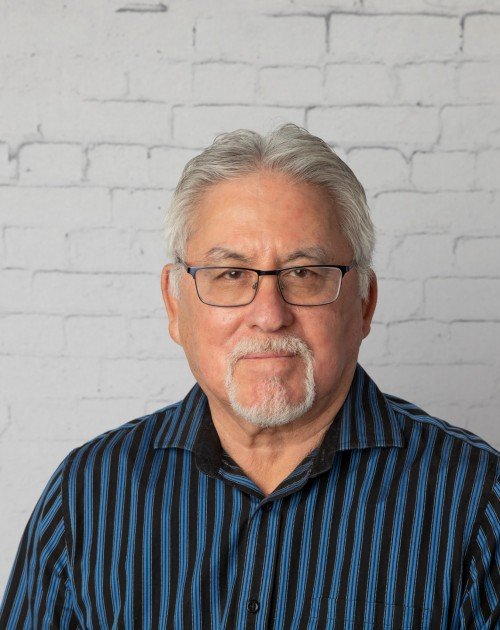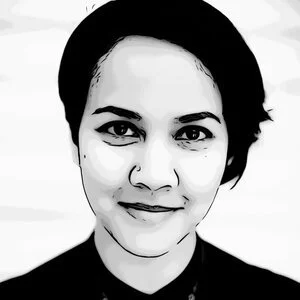Nature Heals
“There are so many misconceptions about First Nations people. I really wanted people to look through the eyes of somebody, live a day as a First Nations person, feel their disappointments and heartaches and struggles.” – Brian Thomas Isaac
Shazlin Rahman in Conversation with Brian Thomas Isaac
Brian Thomas Isaac was born in 1950 on the Okanagan Indian Reserve, situated in south central British Columbia. As a teenager he had a short career riding bulls in local rodeos until common sense steered him away, then went on to work in the Northern Alberta oil fields and retired as a bricklayer. Writing is something he has done all of his life. A lover of sports, Brian has coached minor hockey and played slow-pitch, and when he’s not spending time with his three grandchildren you can find him on the golf course. He lives with his wife in the Salmon River Valley near Falkland, BC. All the Quiet Places is Brian’s first book.
Brian Thomas Isaac. All the Quiet Places. Brindle & Glass. $22.00, 288 pp., ISBN: 9781990071027
Brian Thomas Isaac is a first-time published author, but his story is older than Canada itself. All the Quiet Places is a work of fiction with building blocks from Thomas’s own childhood on the Okanagan Reserve in the 1950s. In this beautifully crafted coming-of-age story, protagonist Eddie Toma has to navigate a treacherous childhood as an Indigenous person growing up in a country with deep colonial roots. And he has to do as a painfully sensitive child who feels and remembers everything he encounters. I spoke to Thomas about becoming a first-time author at age 71, and what it means to share his story now.
Shazlin Rahman: I’m sure you’ve been carrying this story with you for a long time. Why did you decide to tell this story now?
Brian Thomas Isaac: I started writing this book in 2003. I wrote poetry when I was younger, but the thing is that I read a lot. We never had power and water in our house. When I was twelve, I went to visit my uncle who had power and water and everything, and I noticed that he had these books piled in the corner in these mandarin orange boxes. They were hard cover books for young people. They were beautiful. I touched them and he said, “Hey, do you want to read those? They’re just going to waste, and my kids won’t touch them.” And I said, “Oh, you bet!” He gave me a box, and I read every one of them. Treasure Island. Swiss Family Robinson. I really enjoyed them. And one day I sat down, and I just started writing. I didn’t have a clue where I was headed, and the story just came out. It kind of wrote itself. It must have been inside my head for a while or something, but I can’t really explain it. I didn’t really have a thought process, I just started writing stories.
And so, one time my wife gave me a ticket to go to the Penticton Writers’ Festival and so I went, and it was very, very nice. At the end of the day, they said, “We’re going to announce the finalists for the fiction category.” And they said my name! And I thought, “What’s going on here? I never submitted any stories.” My wife, without my knowledge, had sent one of my stories in. So, the next day when they announced the winners, they said my name and I had won the best fiction category. I was shocked, really shocked, because there were quite a few writers. The prize for winning the fiction category was an interview with Jack David of ECW Press. He said, “Frankly, Brian, your chances of being published are next to nothing. It’s almost impossible.” This was in 2003. I wish I could hand him a copy of my book and see what his reaction would be. I always thought of that; it kept me going sometimes.
SR: What really stood out in your writing is how prominent nature is throughout your protagonist’s journey. What was the reason for that?
BTI: I’ve always had the belief that nature heals. When you’re a young child and you don’t have distractions like the internet or TV, you don’t have a lot to do so you spend a lot of time outside, which I did when I was young. I made it part of the book because it was very healing. There’s a part where Eddie crawls inside a tree — my take on that was he was kind of crawling back into the womb of mother earth. It’s so healing inside there. It’s beautiful, with bird sounds, and it may have stopped him from doing something silly or reckless. It was a big part of the book.
SR: It was almost as though he was getting out of nature what he didn’t get from his own mother.
BTI: It was a tough life. Women back in the day had to be tough. While the men were just being men, we didn’t have to really try.
SR: Canada still has a long way to go in reforming its relationship with Indigenous communities, with its history of residential schools and ongoing exploitation of Indigenous lands, to name a few problems. How do you see your book fitting into this context?
BTI: One of the big reasons why I wrote the book is because there are so many misconceptions about First Nations people. I really wanted people to look through the eyes of somebody, live a day as a First Nations person, feel their disappointments and heartaches and struggles. That’s the big push I did for the book. I wanted people to experience it themselves as the reader. I never went to residential school; I was really lucky. I don’t feel I have the qualifications to speak about it. I have cousins [who did] and their lives were changed dramatically, and for the worse.
SR: You ended the story with Eddie, your protagonist, contemplating the end of his life. Was he giving up or was he trying to gain control of his life in some way?
BTI: [It goes back to “nature heals.”] Everything that was piling up on him and his life. He was being blamed for so many things unfairly, and he finally had enough, crawled inside a tree to end it all and, just as he was ready to pull the trigger, nature stepped in. The reader needs to decide for themselves. I had one proofreader, years ago when I killed Eddie off, and she was angry. “He would never do something like that,” she said, “How dare you!” I really wanted the reader to decide for themselves [on] the ending. The saying that nature heals is really part of that ending. People who have been reading and paying attention, they will say, “Wow, I think nature saved him.”
SR: Can we look forward to another book from you any time soon?
BTI: You bet! I’ve been working on it and it’s coming along great. I’d say in about a year or a year and a half, it should be ready.
Shazlin Rahman is a Malaysian-born and Toronto-based writer and artist. Her writings can be found in the Toronto Star, Spacing Magazine and the Ethnic Aisle. Her current project Her Sarong is inspired by her late maternal grandmother and uses visual storytelling to explore representations of labour by women of colour. Shazlin is currently the Community Manager and Writer at FRIENDS of Canadian Broadcasting where she's valiantly fighting against the encroaching Silicon Valley monopoly of Canadian democracy.
Follow Shazlin on Twitter @shazlin_r and on Instagram @hersarong.



